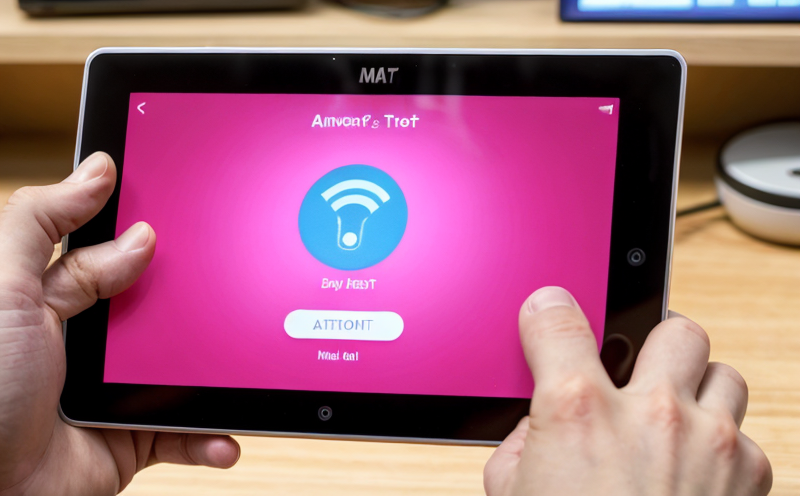CE Marking Compliance Testing for Smart Devices
In today's rapidly evolving consumer electronics landscape, compliance with safety and quality standards is paramount. The CE marking (Conformité Européenne) indicates that a product meets the essential requirements of EU directives and regulations, ensuring it can be legally sold in the European Economic Area (EEA). Smart devices, which integrate internet connectivity and advanced functionalities into everyday consumer products, are subject to stringent testing before they receive this critical mark. This service ensures that smart devices meet all relevant standards for safety, electromagnetic compatibility (EMC), and other essential requirements.
Our team of experts at Eurolab is dedicated to providing comprehensive CE marking compliance testing for smart devices. From initial consultation to final certification, we offer a seamless process tailored to the unique needs of your product. Our services include:
- Comprehensive assessment of your device's design and functionality.
- Precise testing according to relevant standards such as ISO/IEC 27001 for information security, ISO/IEC 15408 for IT security assurance, and ISO/IEC 27034 for information security management.
- Use of state-of-the-art equipment to simulate real-world conditions that your device will encounter.
- Comprehensive reporting and certification support, ensuring your product meets all necessary requirements for CE marking.
The process begins with a detailed review of your product's specifications. Our team will identify the relevant standards based on the intended use and market. We then proceed to conduct rigorous testing in our ISO/IEC 17025 accredited laboratories. Testing covers multiple aspects including:
- Electromagnetic compatibility (EMC): Ensuring your device does not interfere with other electronic devices.
- Safety tests: Verifying that the product is safe for use in its intended environment.
- Environmental testing: Assessing how your device performs under various environmental conditions such as temperature, humidity, and altitude changes.
Upon successful completion of all required tests, our team prepares a detailed report outlining the results. This document serves as evidence that your product meets all necessary standards for CE marking. Should any issues arise during testing, we will provide expert advice on how to address them and ensure compliance.
Applied Standards
| Standard Number | Description | Scope |
|---|---|---|
| ISO/IEC 15408-2 | IT Security Assurance Requirements and Evaluation Methodology - Part 2: Code of Practice for the Use of IT Security Evaluation Labels | Provides guidelines on how to assess and label security features in IT products. |
| ISO/IEC 27034-1 | Information Security Management - Part 1: Requirements for the Application of Information Security Management Systems | Outlines requirements for implementing information security management systems. |
| ISO/IEC 27046-1 | Information Technology - IT Security Assurance Requirements and Evaluation Methodology - Part 1: General Framework | Establishes a general framework for ensuring information security. |
| IEC/IEEE 62443-1 | Cybersecurity Engineering - Part 1: Systems and Organization | Focuses on cybersecurity in the design, development, and deployment of IT systems. |
Eurolab Advantages
At Eurolab, we pride ourselves on delivering top-tier services that exceed expectations. Our advantages include:
- Expertise: Our team consists of highly qualified professionals with extensive experience in testing and certification.
- Accreditation: Eurolab is ISO/IEC 17025 accredited, ensuring the highest level of quality assurance.
- Comprehensive Coverage: We provide a full range of services, from initial consultation to final certification.
- Technology Leadership: Utilizing cutting-edge technology and equipment for accurate and reliable testing results.
Quality and Reliability Assurance
Quality assurance (QA) is an integral part of our service. We adhere to strict quality control measures at every stage, ensuring that your product not only meets but exceeds the required standards.
In addition to rigorous testing protocols, we employ advanced data analysis techniques to provide precise and detailed reports. Our QA processes are designed to detect potential issues early on, allowing for timely corrections and improvements. This approach minimizes risks associated with non-compliance and enhances overall product reliability.





